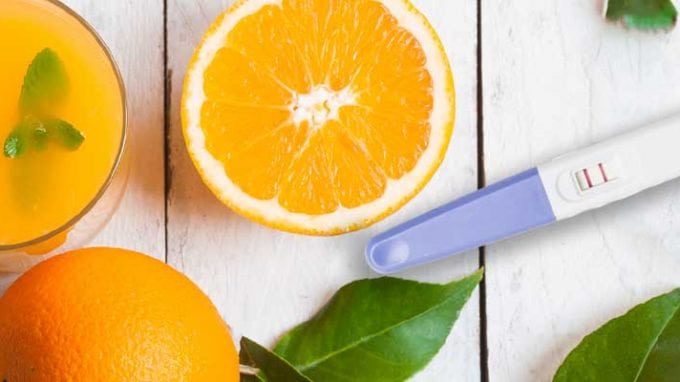If you are trying to conceive a child, then it is important to for both you and your partner to get enough vitamin C in your diets.
Read on to find out how this vitamin affects both male and female health and fertility and how much you and your partner should incorporate in your diets each day when trying to conceive.
Vitamin C and Male Reproductive Health
To understand how this vitamin helps improve male reproductive health, it is important to understand that, while a vitamin, it is also a very potent antioxidant. Antioxidants help protect all human body cells from damage caused by free radicals, which are harmful elements the human body encounters every day that cause DNA damage to skin and organs.
While some couples struggle to conceive due to low male sperm count, others struggle due to the quality of the male’s sperm. Even if a man has a healthy sperm count, if many of his sperm suffer from DNA damage, then a couple can still have trouble conceiving due to this problem.
Just like this vitamin can protect a person’s skin and organs from DNA damage, it can also protect a male’s sperm from DNA damage. However, this vitamin is not just a powerful protector of sperm quality, but studies have also shown that supplementation of this vitamin can also increase sperm count and sperm motility.
This makes getting plenty of this vitamin an important step to improving male reproductive health when a couple is battling infertility.
Vitamin C and Female Reproductive Health

The luteal phase of your menstrual cycle is the time between when you ovulate and when you begin menstruating. Luteal phase defect typically causes this time period that should last about 12 days to shorten. A short luteal phase leads to your uterus not having enough time to grow a healthy lining that will support a fertilized egg and this can prevent a fertilized egg from turning into a pregnancy.
Luteal phase defect is believed to occur when a woman’s body does not produce enough progesterone, especially during the luteal phase.
Studies show that when a woman increases her intake of this vitamin, it can help her conquer luteal phase syndrome due to this vitamin’s ability to stimulate progesterone production in a woman’s body. If you have a short luteal phase, then increasing your intake of this vitamin could help you finally conceive.
Ideal Daily Intake of This Vitamin For Battling Infertility
Of course, it is important to know just how much of this vitamin your partner and you will need to eat each day to improve your chances of conception. While you can both take vitamin supplements, it is best to just eat plenty of foods rich in this vitamin.
The men included in the study that experienced increased sperm quality, count and mobility were consuming 1,000 mg of the vitamin twice a day for two months.
For women suffering from luteal phase defect and undergoing IVF, studies show that just 500 mg per day was enough to increase progesterone levels and the chances of becoming pregnant.
Foods highest in this vitamin include guava (125 mg per fruit), oranges (82 mg per large orange), red peppers (95 mg in one-half cup) and kale (80 mg in one cup). Other foods that are great sources of this vitamin include broccoli, strawberries, grapefruit, green peppers, kiwi and Brussel sprouts.
If you are trying to conceive a child, then realize that it is important for both you and your partner to eat a healthy diet that supports male and female reproductive health. Eating plenty of this vitamin can help you combat infertility and finally conceive that baby you have been waiting for.





